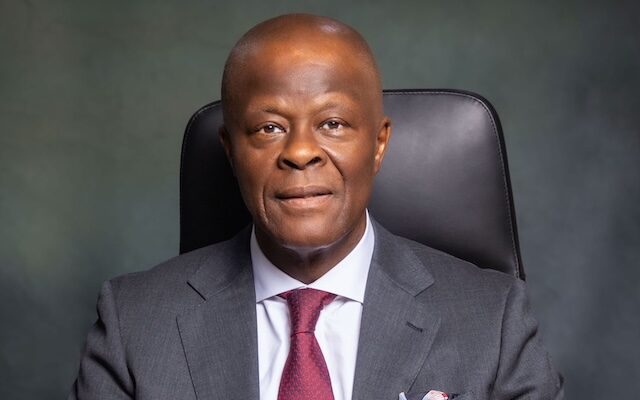FCTA, UN Women, Monarch Unite against Gender-Based Violence
FCTA, UN Women, Monarch Unite against Gender-Based Violence
Michael Olugbode in Abuja
The Federal Capital Territory Administration (FCTA) Women Affairs Secretariat, in collaboration with UN Women, is partnering with traditional leaders across the FCT to eliminate gender-based violence and promote safer communities for women and girls.
At a high-level sensitisation workshop held in Abuja, influential traditional rulers from across the territory gathered to strengthen grassroots action, reshape harmful cultural norms, and reinforce community-driven accountability in the fight against gender-based violence (GBV).
The initiative, supported by the Ford Foundation, is part of a wider national effort where traditional leaders are playing a pivotal role in promoting gender equality and protecting women’s rights. Through dialogue, advocacy, and local policy reform, the collaboration aims to end practices such as child marriage, female genital mutilation, and other forms of abuse.
In her keynote address, UN Women Representative to Nigeria and ECOWAS, Beatrice Eyong, stressed that gender-based violence (GBV) is not only a moral and social crisis but also an economic one.
She explained that violence against women has measurable financial costs, reducing national productivity and growth.
“Gender-based violence is not just a social issue. It’s not just a medical or personal issue. Statistics show that GBV is an economic problem one that reduces a country’s GDP by as much as two per cent, costing nations billions of naira every year. It affects men, women, and entire communities, limiting our collective ability to prosper.”
Eyong illustrated how the long-term impact of GBV goes beyond physical or emotional harm, deepening poverty by preventing millions of women from contributing meaningfully to society and the economy.
“Gender-based violence perpetuates poverty and reduces people’s capacity to produce. Imagine 30 million Nigerian women unable to reach their potential because of fear and harm that’s billions lost to our economy each year. Every time a woman is silenced, beaten, or denied opportunity, the nation loses talent, creativity, and productivity.”
She spoke passionately about how denying girls education through early marriage or harmful traditional practices creates lifelong barriers to empowerment, prosperity, and equality.
“Imagine a young girl who, at 15, is taken out of school to be married off. That single act shifts her entire life into poverty because she never got the chance to learn a trade or complete her education. When girls are denied knowledge and opportunity, they are denied power. Educating a girl means equipping a future mother, leader, and nation builder it’s the most powerful tool we have to break the cycle of gender-based violence.”
Eyong emphasised that the involvement of traditional rulers is critical to ending GBV, as they hold moral authority and deep cultural influence. She pointed to examples across Nigeria where royal fathers have led transformative campaigns against harmful practices.
“Traditional rulers are not only custodians of culture but also moral compasses and agents of transformation. Across Nigeria, we have seen royal fathers lead the charge against practices like child marriage, female genital mutilation, and widowhood rites. When traditional institutions speak, communities listen and that power can be used to protect women, empower girls, and inspire a generation of change-makers.”
In closing, Eyong issued a heartfelt call for unity among government, traditional leaders, and communities to create a future where every woman and girl can live without fear.
“This session is not just a meeting; it is a movement a movement to reimagine leadership, to protect our daughters, and to preserve the integrity of our communities. The commitments made here will spark community dialogues across the FCT and beyond. Together traditional rulers, women leaders, youth, and partners we can end gender-based violence, one declaration, one action, and one community at a time.”
Pioneer Mandate Secretary, FCT Women Affairs Secretariat (WAS), Dr. Adedayo Benjamins-Laniyi, began her address by emphasising that the workshop was not just a formal gathering but also a rallying movement for change a collective call to action bringing together traditional leaders, policymakers, and community influencers to end GBV and protect women across all FCT communities.
“Today’s gathering is more than a meeting. It is a movement of conscience and collaboration a shared commitment to end the scourge of gender-based violence and to build communities where women and girls live, learn, and thrive without fear.”
She highlighted the indispensable role of traditional rulers in influencing social behavior and shaping moral values. According to her, royal fathers are not just custodians of tradition but powerful agents whose authority reaches places where government policy often cannot.
“Our traditional leaders remain the heartbeat of our cultural identity, the moral custodians of our communities. Your wisdom, influence, and authority reach where government policy cannot into the hearts, homes, and history of our people.”
Dr. Benjamins-Laniyi urged traditional rulers to use their authority and influence to lead the transformation from within by turning culture into a force for protection rather than harm. She said the conversation with traditional institutions will help craft homegrown strategies for ending GBV.
She added that: “Through the culture of the royal monarchy, we will have colours that make our GBV action not only shine but show and tell a story that is not just local but global. The strategies we create here today will translate influence into impact and tradition into transformation making every chiefdom in the FCT a zero-tolerance zone for gender-based violence.”
She appealed for a societal mindset shift — from silence to solidarity, from stigma to support and reaffirmed that ending GBV requires collective action by leaders, communities, and citizens alike.
“Beyond structures and policies, we need a change of mindset. Let this workshop ignite a new spirit where silence is replaced by solidarity, where stigma gives way to support, and where culture becomes a catalyst for compassion, not a cover for harmful practices. The protection of women is not just a woman’s issue it is a humanity issue.”
Mandate Secretary, Area Council Services Secretariat (ACSS), Hon. Bitrus Garki commended the workshop’s focus on traditional rulers, noting that their participation was significant because they play a crucial role in addressing issues affecting communities at the grassroots level.
He said: “This workshop for traditional rulers has come at the right time because issues of this nature have always been part of their responsibilities in the palaces. It is rare to have such an assembly of royal fathers, and their presence here shows how important this fight against gender-based violence is to them and their communities.”
He assured participants and development partners that the traditional rulers present would take the message of the workshop back to their respective communities, ensuring that the fight against GBV reaches the grassroots and achieves real, lasting impact.
“I want to assure you that the message from today’s workshop will reach the grassroots. Once that happens, the aim has been achieved. Our royal fathers will amplify this message in their palaces and communities, helping us move toward the total eradication of gender-based violence across the FCT.”
His Royal Highness Haruna Tanko Jibrin, Gomo of Kuje, representing the Ona of Abaji, HRH Alhaji (Dr.) Adamu Baba Yunusa, expressed the commitment of traditional rulers to championing the cause.
He said: “I am delighted to be part of this important workshop on an issue that deeply affects our communities. We appreciate the FCTA and UN Women for organizing this engagement for traditional rulers in the FCT. We stand firmly in support of efforts to end gender-based violence in the FCT and across Nigeria. We will continue to work and speak out until GBV is completely eliminated.”
His Royal Highness Luka Ayedoo Nizassan III, Chairman, Council of Chiefs, Kwali Area Council, narrated a distressing case of child molestation involving a young child, Chibuke, who was abused by a perpetrator, Abbas. The case was initially reported to the police, and while the suspect was released, authorities and community leaders ensured continued follow-up. The matter was then reported to the local government council, which provided support to the child and her mother. Persistent advocacy and intervention from the council and traditional leaders eventually ensured that justice was served, sending a strong message that GBV will not be tolerated in the community.
He stressed that the council and chiefdoms are actively working to eradicate physical and sexual violence in their communities, highlighting the ongoing efforts to build a culture of reporting, awareness, and collective action against GBV.
“Our commitment is clear. We support the fight against gender-based violence. In my chiefdom, we have totally dealt with it
it never existed here. We are working to ensure that such harmful practices do not interfere with the safety and wellbeing of our communities.”
He emphasised the importance of concerted efforts among traditional rulers and communities to prevent new cases of violence and encourage a culture of reporting and response.
“We are all working together to ensure we do not have new cases of gender-based violence. We are building a culture of reporting, response, and awareness so that families and cultural lineages understand that such harmful practices have no place in our communities.”
Michael Olugbode in Abuja The Federal Capital Territory Administration (FCTA) Women Affairs Secretariat, in collaboration with UN Women, is partnering with traditional leaders across the FCT to eliminate gender-based violence and
Read more





